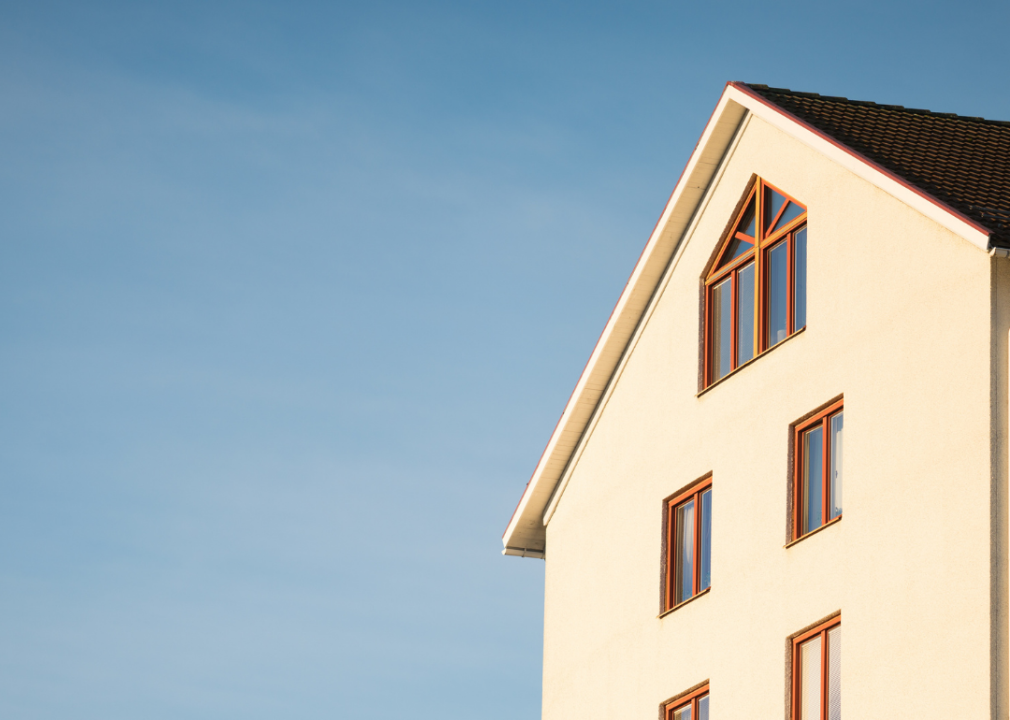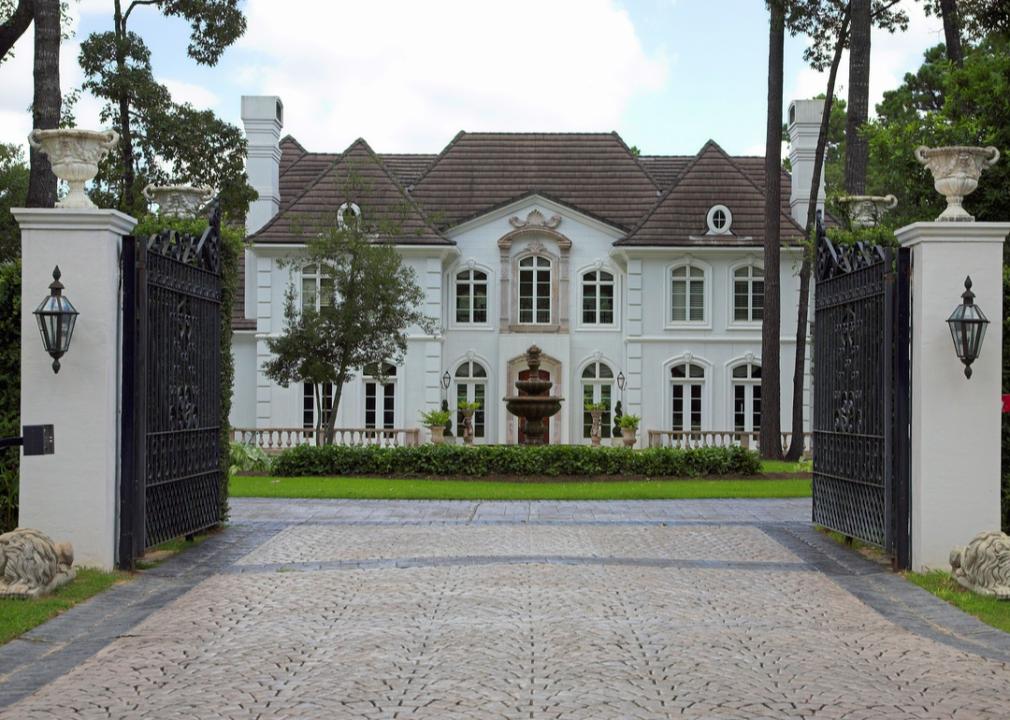10 types of mortgage loans, explained
Canva
10 types of mortgage loans, explained
The vast majority of homebuyers don’t have the funds to pay for a home outright—which means millions of mortgages are being paid off in monthly installments. With the American homeownership rate at 65.5% in the fourth quarter of 2021, the mortgage industry is big business: But not all mortgage loans are created equal.
Real estate platform ZeroDown compiled a list of 10 types of mortgage loans, using information from mortgage providers, government agencies, and real estate news outlets.
The lowest mortgage often rates go to borrowers with the best credit history, the highest down payments (20% of the purchase price or more, commonly), and the lowest debt-to-income ratios. For everyone else—most of whom put down between 6% and 7%, the federal government has a number of programs to assist with mortgage lending: the Federal National Mortgage Association, or Fannie Mae; the Federal Home Loan Mortgage Corporation, or Freddie Mac; and the Government National Mortgage Association, or Ginnie Mae. These federally backed mortgages can help lower-income borrowers who may have a more modest down payment or less-than-stellar credit record buy homes.
The forthcoming list serves as an explainer of the pros and cons of various mortgage options.
![]()
fizkes // Shutterstock
Conventional loan
Conventional loans aren’t secured by government agencies and may encompass other loans on this list. Most other loans fall into one of two conventional loan categories: conforming (with lending rules set by Fannie Mae and Freddie Mac) and non-conforming (with features set by the lender that operate outside of Fannie Mae or Freddie Mac guidelines).
Interest rate charges vary according to each borrower’s specific credit score and debt-to-income ratio, but the rate on a conventional loan is generally better suited for those with credit scores above 680 who can take advantage of lower interest rates and monthly payments. Alternatively, FHA loans may be well-suited for those with credit scores below 680.
Ernest R. Prim // Shutterstock
Jumbo loan
With the surge in housing prices, many buyers need mortgage amounts larger than the limit of $647,200 that applies to most conventional loans (up to $970,800 in especially high-priced areas).
Buyers and owners who want to refinance an upscale property will have to find the aptly named “jumbo loan.” Not all lending companies will offer jumbo mortgages, but those who do often reserve them for the wealthiest customers. Lenders aren’t selling these loans to government agencies, and will often be stricter on the qualifications a borrower must meet. But like conventional loans, jumbos are usually offered with either a fixed or adjustable interest rate.
Canva
Fixed-rate mortgage
Some mortgages come with a fixed-rate loan, which entails a static interest rate throughout the term of the loan.
Many varieties of mortgages are offered at a fixed rate. Especially when prevailing interest rates are relatively low, borrowers benefit by locking in a rate for the length of the loan and relying on a predictable bill due each month.
Homeowners holding fixed-rate mortgages have the option to refinance should rates drop.
4 PM production // Shutterstock
Adjustable-rate mortgage
The adjustable-rate mortgage became popular in the ‘70s when interest rates were relatively high.
ARMs initially may carry a lower interest charge than prevailing fixed rates. Over the years, rules on how lenders can prudently make these adjustable mortgages have been developed.
Offered with an initial, fixed-rate period, ARMs can be set for one, five, seven, or 10 years. Known by their numerical values, such as “5/1,” the first number indicates how long the fixed rate is for; the second refers to how often the rate can change after the initial period. A 5/1 ARM holds a rate steady for five years with subsequent variations every year.
If borrowers think it’s likely they’ll be moving again after a certain number of years, they can take an ARM with the initial fixed-rate period matching their anticipated stay.
Amnaj Khetsamtip // Shutterstock
FHA loan
Federal Housing Administration mortgages are under the auspices of the Department of Housing and Urban Development. Offered to spur homeownership, borrowers with credit scores too low to qualify for a conventional loan may be eligible for an FHA mortgage, which can be had with just a 3.5% down payment.
If the borrower defaults on an FHA loan, the government will step in to pay off a lender, so there are rules designed to avoid that possibility. That might mean a more stringent appraisal to ensure a home meets safety standards. Limits on loan size also apply.
Because FHA loans are viewed as riskier, they carry an extra charge for insurance that will pay the lender in the event the home goes into foreclosure. The Mortgage Bankers Association in March 2022 warned that high housing prices and rates are making purchasing a home with an FHA loan more difficult.
Canva
USDA loan
The Department of Agriculture, the agency that lends to farmers and inspects the meat we buy at the grocery store, is also in the mortgage business. The USDA wants to promote homeownership in rural areas, so it backs loans on homes. USDA mortgages don’t require a down payment and are offered at competitive, low rates.
Some outer ring suburbs lie in qualifying areas; buyers can input an address on the USDA site to see if a home is eligible. Banks and lending firms offering USDA-backed loans are also identified on the site.
Canva
VA loan
VA loans, available to qualified active-service military members, veterans, and surviving spouses, are available with no down payment, lower rates than on conventional loans, and limited closing costs.
If you’re a qualifying borrower, it’s worthwhile to check out the offerings with a lending firm that extends VA mortgages. First-time and repeat homebuyers can use a VA mortgage to purchase. Just as with a conventional mortgage, VA lenders establish mortgage limits based on debt-to-income ratios.
Canva
Balloon mortgage
Balloon mortgages are aptly named: Like blowing small, steady breaths into a balloon, borrowers pay consistent monthly payments until the end of a certain term followed by a “pop” as a final, large amount comes due that pays off the entire loan balance.
These loans are deemed “non-qualified,” a concept developed by the federal government in the wake of the foreclosure crisis in 2008. With a qualified loan, a lender must make a reasonable assessment of whether a borrower will have the funds to reliably pay back the loan. These loans are not readily offered and can be extremely risky for buyers.
Canva
Piggyback loan
With conventional loans, buyers who have down payments of less than 20% pay for private mortgage insurance. PMI adds a charge to the monthly mortgage bill, depending on the loan amount and borrower profile.
An alternative is to take two mortgages: one main mortgage in the amount of 80% of the purchase price, and a second for whatever sum a borrower needs to make a 20% down payment. A borrower should carefully compare costs between adding PMI or taking a piggyback, as savings might not be there. Piggyback loans are also “non-qualified” mortgages, meaning they aren’t widely available or sanctioned by government mortgage agencies.
Zivica Kerkez // Shutterstock
Home improvement loan
In a sellers’ market where many buyers bid against each other, the only type of home that languishes is a run-down fixer-upper.
Buyers need time if they wish to secure an FHA 203k, or home-improvement mortgage, which bundles repair costs and purchase funds into one loan. The rehab costs to make the home livable have to exceed $5,000 for a property to be eligible.
FHA 203k loans are like regular FHA mortgages in that they are offered at fixed and adjustable rates and can’t exceed regular FHA limits. The process of obtaining the 203k can be lengthy, with contractor estimates and designs procured before funding.
This story originally appeared on ZeroDown
and was produced and distributed in partnership with Stacker Studio.














